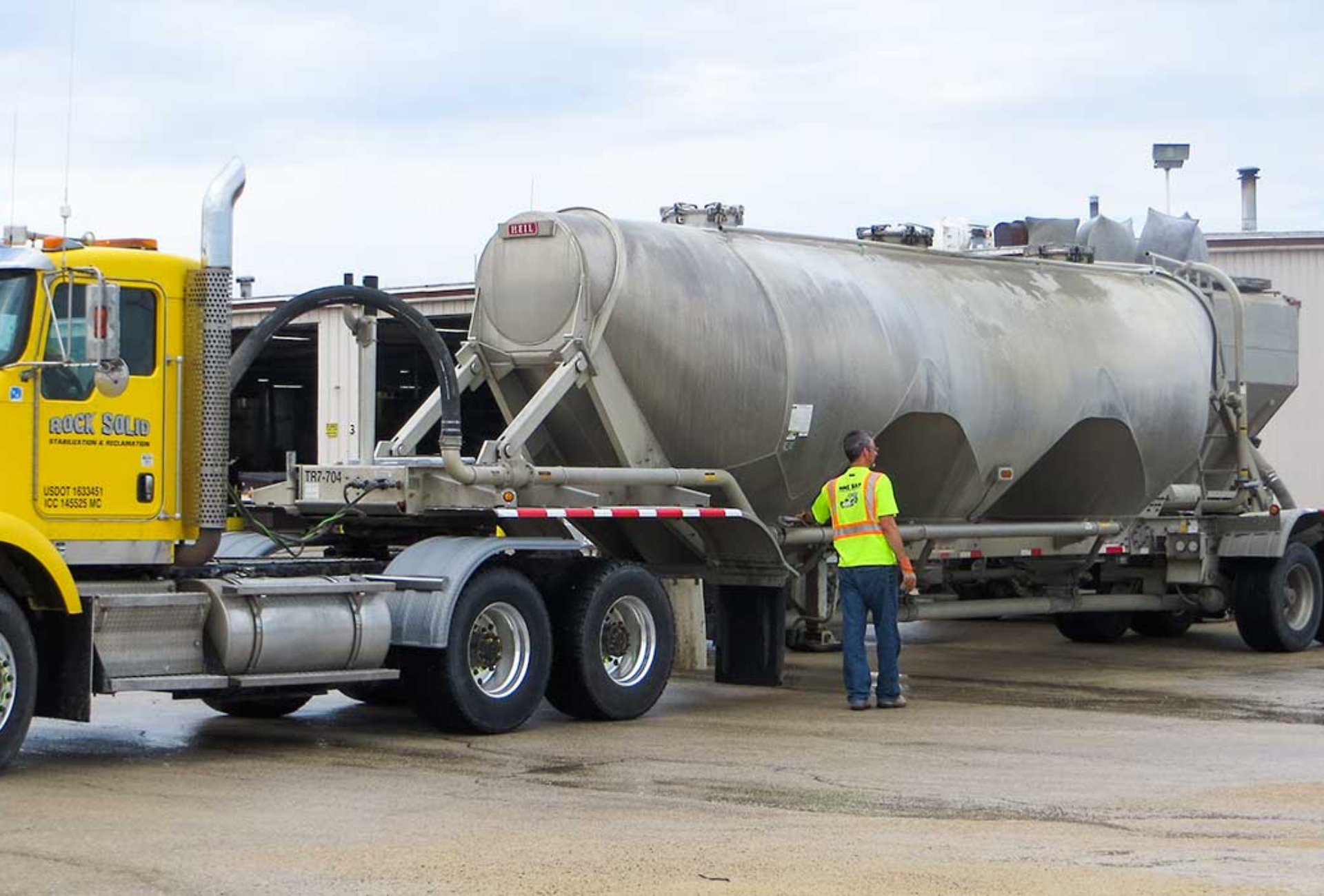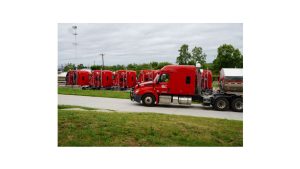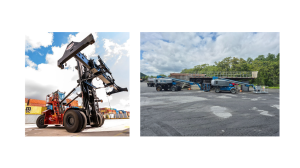Dry bulk tanks are essential for transporting various materials, but their unique nature requires special care and attention. This blog will explore why dry bulk tanks demand meticulous handling and maintenance.
What Are Dry Bulk Tanks?
Dry bulk tanks are specialized containers designed for transporting materials in bulk quantities. These materials typically include powders, granules, grains, ores, minerals, and other free-flowing commodities. These tanks are used in various industries, such as agriculture, construction, mining, food processing, and chemical manufacturing, to transport bulk materials efficiently and economically.
Types of Dry Bulk Tanks
1. Hopper Bottom Tanks
Hopper-bottom tanks feature a conical-shaped bottom that facilitates the efficient discharge of bulk materials. The sloped design allows gravity to assist in the flow of materials, ensuring complete tank emptying. Hopper-bottom tanks are commonly used for storing and transporting granular materials like grains, seeds, and fertilizers.
2. Pneumatic Tanks
Pneumatic tanks, or bulk pneumatic trailers or air slides, use compressed air to unload materials. These tanks feature a sealed chamber equipped with pneumatic valves and fittings that allow for the pressurized discharge of materials. Pneumatic tanks are often used for transporting fine powders, such as cement, flour, and sugar.
3. Vacuum Tanks
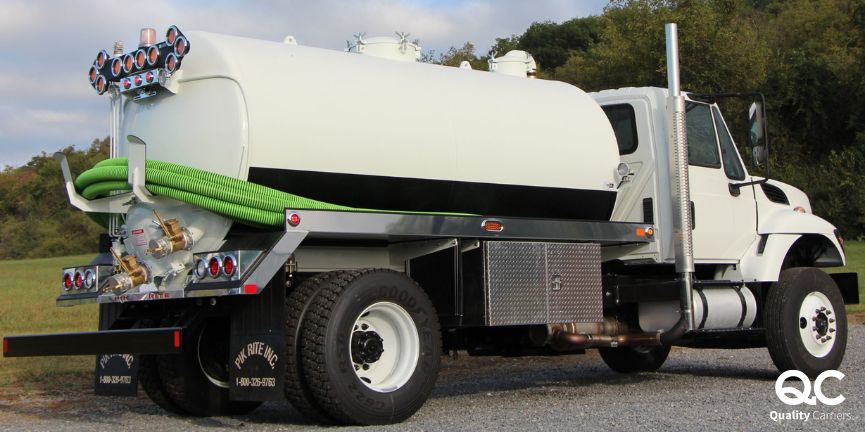
Vacuum tanks are designed to transport materials prone to degradation or contamination when exposed to air. These tanks create a vacuum within the storage chamber, effectively sealing the contents and preventing exposure to moisture or contaminants. Vacuum tanks are commonly used for transporting sensitive materials like plastic pellets, pharmaceutical powders, and certain chemicals.
4. Flatbed Trailers with Bulkheads
Flatbed trailers with bulkheads or flatbeds are suitable for transporting large, heavy, or irregularly shaped materials. These trailers feature sturdy bulkheads at the front and rear ends to contain and secure the cargo during transit. Bulkhead trailers are commonly used for transporting bulk commodities like steel coils, lumber, and construction materials.
5. ISO Tank Containers
ISO tank containers are standardized for intermodal transportation and dry bulk materials. These containers feature a cylindrical shape with reinforced walls and corner castings for easy handling and stacking. ISO tank containers are commonly used for transporting materials like grains, minerals, and chemicals in a sealed and secure manner.
Reasons Why Dry Bulk Tanks Require Special Care
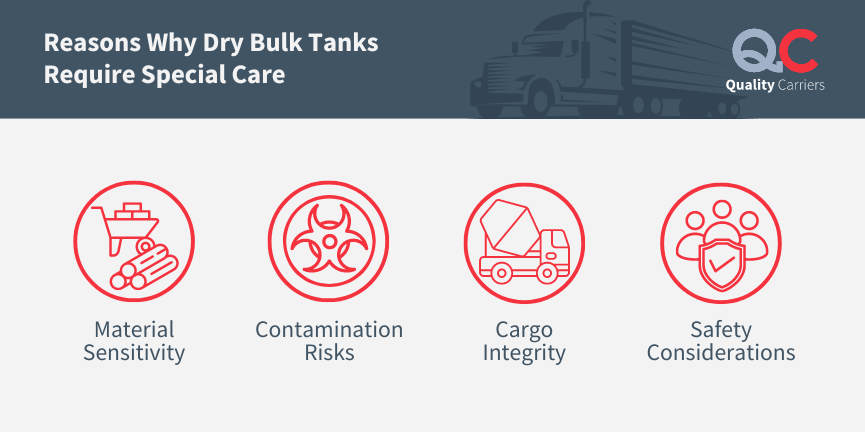
1. Material Sensitivity
Dry bulk tanks transport various materials, including powders, granules, and other commodities. These materials can vary significantly in their properties, such as abrasiveness, moisture sensitivity, and reactivity. Therefore, proper care is crucial to prevent cargo contamination, degradation, or reaction during transit.
2. Contamination Risks
Contamination poses a significant risk in dry bulk shipping, as even small traces of foreign substances can compromise the quality of the cargo. Unlike liquid or gas tanks, these tanks are susceptible to contamination from residues of previous cargoes or external pollutants. Therefore, thorough cleaning and inspection procedures are essential to maintain cargo purity and prevent cross-contamination.
3. Cargo Integrity
Dry bulk tanks must ensure the integrity of the cargo throughout the shipping process. Any damage or leakage in the tank structure can lead to product loss, environmental hazards, and safety risks. Additionally, improper handling or loading techniques can cause cargo shifting or compaction, resulting in uneven distribution and potential stability issues during transit.
4. Safety Considerations
Safety is paramount in dry bulk shipping operations, considering the nature of the cargo and the handling procedures involved. Dry bulk tanks may carry hazardous materials or substances with specific safety requirements. Therefore, adherence to safety protocols, including proper ventilation, temperature control, and compliance with regulatory standards, is essential to minimize risks and ensure safe transportation.
Find Dry Bulk Driver Jobs at Quality Carriers
Quality Carriers is actively seeking experienced and dedicated individuals to join our team as drivers. As a leader in the transportation industry, we prioritize safety, professionalism, and reliability. Our dry bulk drivers ensure the safe and efficient transport of materials, and we provide comprehensive training and support to help them excel in their roles. If you’re passionate about driving and committed to delivering excellence, consider applying for a bulk driver position at Quality Carriers.
Conclusion
Dry bulk tanks play a critical role in transporting bulk materials across various industries, but their handling requires special care and attention due to their unique challenges. By understanding the essentials of specialized care for tanks and implementing rigorous maintenance practices, stakeholders can ensure safe, efficient, and reliable cargo transportation.
Whether you’re involved in shipping or rely on the products transported in these tanks, prioritizing proper care and maintenance is vital to safeguarding cargo quality, protecting the environment, and enhancing overall operational efficiency.
FAQs
Why is proper maintenance essential for dry bulk tanks?
Proper maintenance is crucial for dry bulk tanks to ensure their structural integrity, prevent leaks or contamination, and maintain operational efficiency. Regular maintenance helps identify potential issues and reduce the risk of costly repairs or accidents.
How do environmental factors affect dry bulk tanks?
Environmental factors like temperature fluctuations, humidity levels, and exposure to corrosive substances can affect dry bulk tanks. Extreme temperatures can cause materials to contract, leading to structural damage or leaks. High humidity can promote corrosion, while chemical exposure can degrade tank materials.
What are common issues that arise with dry bulk tanks?
Common issues with dry bulk tanks include corrosion, leaks, structural damage, material buildup, and mechanical failures. Corrosion can weaken tank walls, leading to leaks or ruptures. Material buildup can affect flow rates and cause blockages. Mechanical failures in valves, fittings, or components can disrupt operations.
How often should tanks be inspected and serviced?
Tanks should be inspected regularly according to manufacturer recommendations and industry standards. Inspections are conducted at least annually, with more frequent checks for tanks in harsh environments or high-usage applications. Regular servicing should include:
- Cleaning.
- Maintenance of valves and fittings.
- Structural inspections.
- Testing for leaks or structural integrity.
